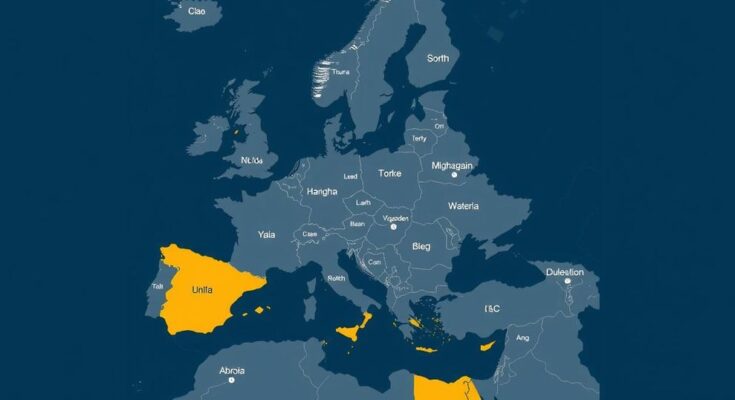An investigative report exposes the EU’s indirect role in forced deportations from Türkiye to conflict zones. President von der Leyen advocates for ‘return hubs,’ while NGOs criticize Tunisia as unsafe for disembarkation. Lebanon sees over 310,000 flee to Syria amid conflicts, raising urgent human migration concerns.
A recent investigation has unveiled the European Union’s indirect involvement in the forced deportation of individuals from Türkiye to conflict zones including Syria and Afghanistan. An investigative report published by Lighthouse Reports, in collaboration with several prominent news agencies, describes how the EU has invested hundreds of millions of euros into a clandestine deportation network operating at its borders. This network reportedly includes detention centers where Syrian and Afghan nationals face severe human rights abuses. European Commission President Ursula von der Leyen has proposed the establishment of ‘return hubs’ as a strategic approach ahead of discussions in the European Council. A leaked document indicates that both Egypt and Tunisia are hesitant to engage in agreements with the EU concerning migration, while cooperation with Libya is reportedly improving. Over 60 non-governmental organizations (NGOs) have expressed their concerns regarding Tunisia’s safety for disembarkation, asserting that the country cannot be deemed safe due to rampant human rights abuses and governmental repression. Simultaneously, Lebanon has witnessed a significant movement of over 310,000 individuals fleeing to Syria amidst the recent escalation of the Israel-Lebanon conflict, highlighting ongoing human displacement issues.
The topic addresses the complex dynamics of EU migration policies and their implications for human rights. The investigation accentuates the EU’s financial involvement in supporting systems that lead to forced deportations, particularly affecting vulnerable populations such as Syrians and Afghans. The ongoing tension in the Middle East, particularly in Lebanon, adds another layer of urgency to the migration crisis, as thousands seek refuge. The response from Egypt and Tunisia signals challenges in EU collaboration with third countries to manage migration responsibly, raising questions about the ethical dimensions of EU migration strategy.
The findings highlight serious concerns regarding the EU’s role in supporting forced deportations and the human rights violations associated with this system. The need for safe and humane migration solutions is paramount, particularly in light of conflicts in the Middle East and the challenges faced by those seeking asylum. As discussions on migration policies continue, it is crucial for the EU to prioritize human rights and the protection of vulnerable populations over punitive measures.
Original Source: ecre.org




